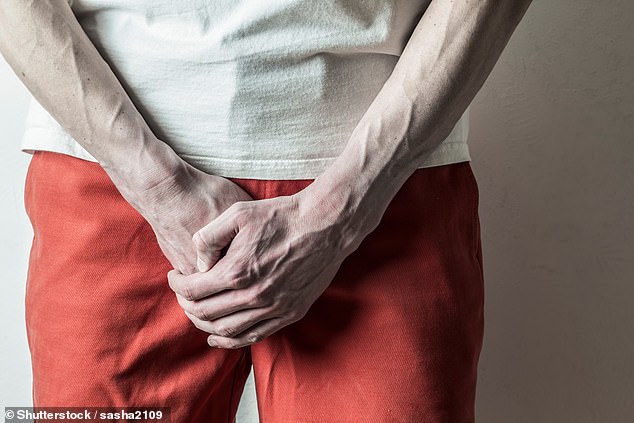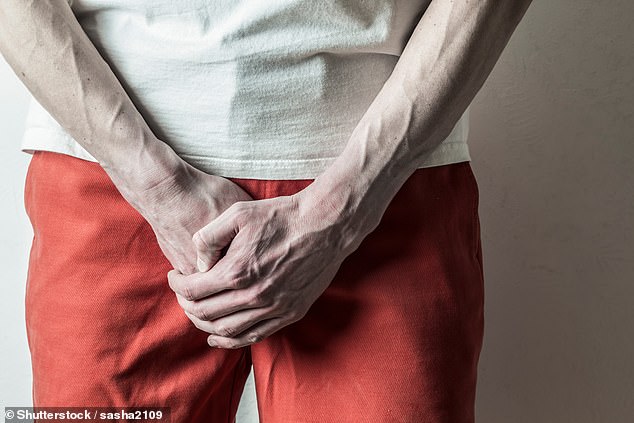Covid-19 could have a long-term effect on male fertility, German study claims
Covid-19 could have a long-term effect on male fertility, German study claims
- German scientists find semen quality deteriorates in group of men with Covid-19
- They advise men who recover from Covid to have reproductive health check-up
- Experts say more research needed to prove link between Covid and low fertility
Covid-19 could have a long-term effect on male fertility, a study in Germany has claimed.
Scientists compared semen quality in groups of men who had recovered from the virus to those who had never contracted it.
They found that having had Covid-19 appeared to lead to ‘lower sperm quality and reduced fertility potential’.
The sperm were more likely to be deformed, the researchers found, to be less mobile and to be found in lower concentrations in the semen, which could make it more difficult to conceive.
Effects of Covid on people’s ability to have children has not been widely studied because the disease has more devastating effects on the lungs, heart and blood vessels which have required more urgent scientific attention.
It was not exactly clear how coronavirus affected the testicles, the scientists said, although fever – a common symptom of Covid – is known to be able to damage them.
The damage to sperm quality appeared to reduce after time, with it returning towards normal levels as more time elapsed after infection, but the effects were worse in men who had been more severely ill.
Following the study, researchers advised men who survived Covid to have their reproductive health checked before trying for a baby – but warned their findings were not concrete.

Scientists in Germany found Covid-19 effected the shape, concentration and mobility of sperm, but experts say more research needs to be done – as even the common flu can have an impact on sperm count (stock image)
Experts at Justus-Liebig University in Giessen, Germany, analysed 84 men with Covid- 19 and 105 age-matched control subjects, without the virus, taking measurements every 10 days for 60 days.
The study found a significant deterioration in semen quality up to 60 days after the illness.
When they compared the two groups they found that indicators that could make a men less able to father a child were significantly more common among men who had had Covid.
These included signs of swelling, sperm cell death and oxidative stress, which is when volatile chemicals build up in living tissues because of cells not working properly.
The concentration of sperm was reduced by up to 516 per cent and its mobility dropped by 209 per cent, the study said, although all the men were still confirmed to be fertile.
The reduction in mobility and concentration of sperm, as well as a significant altering of their shape which is critical to their ability to move through the cervix and uterus, led to a state called OAT.
OAT is known scientifically as oligoasthenoteratozoospermia and is a common cause of low fertility among men.
The lead researcher on the study, PhD student Behzad Hajizadeh Maleki said: ‘These effects on sperm cells are associated with lower sperm quality and reduced fertility potential.
‘Although these effects tended to improve over time, they remained significantly and abnormally higher in the Covid-19 patients, and the magnitude of these changes were also related to disease severity.’
But others have called for long-term research to provide more evidence before a link can be proven certain.
Research has been carried out amid concern that Covid-19 uses receptors to gain access to lung tissue that are also found in testicles.
Prof Allan Pacey, an expert in andrology at the University of Sheffield, urged caution, warning: ‘Since sperm production takes just under three months, roughly, to be completed from start to finish, in my opinion they ended the study 30 days too soon.’
Other experts have suggested viruses such as the flu can cause a temporarily sperm counts to drop for weeks or even months, before recovering.

